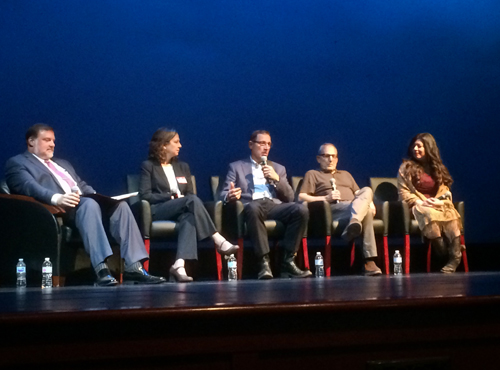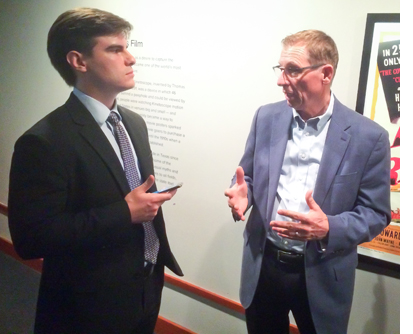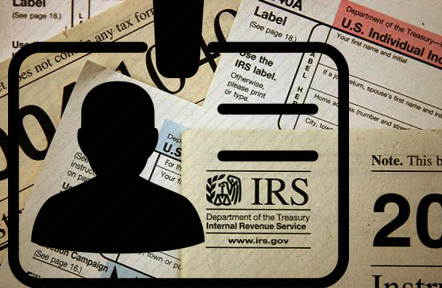Lawmakers and Business Leaders Discuss Commonsense Immigration Reform at Rational Middle of Immigration Video Screening
 Business leaders, lawmakers, and people interested in immigration policy met at the Bob Bullock Texas State History Museum last week in Austin to view screenings of two Rational Middle of Immigration videos and discuss immigration reform. The videos are free to view and share.
Business leaders, lawmakers, and people interested in immigration policy met at the Bob Bullock Texas State History Museum last week in Austin to view screenings of two Rational Middle of Immigration videos and discuss immigration reform. The videos are free to view and share.
According to the event flyer, “The Rational Middle is a conceptual place where everyone can sit at the table with the purpose of engaging in civil, facts-based discussions that lead to workable, implementable solutions in order to make our communities, and our nation, a more safe, equitable and prosperous place for all.”
Film Director Gregory Kallenberg explained that the videos serve to bring people closer to a “rational middle” on immigration, a topic in which discussions can be very polarized. He lamented how the politically charged rhetoric surrounding the topic “has created a political stasis in one of the most important issues facing our nation today.”
Stan Marek, CEO of MAREK and Co-Founder of Texans for Sensible Immigration Policy, highlighted the critical role that immigrant workers have in the construction industry, adding that that it could be improved if they had a way to earn their legal status so they can be identified and taxed properly. “Our workforce today is an immigrant workforce, and unfortunately about half are undocumented because there’s no way for them to get their papers,” he said.
Chelsie Kramer, the State Organizer for New American Economy, encouraged attendants to help spread Rational Middle’s sensible message. “Take this message to heart and take it back to your hometown chambers of commerce, business associations, your congressmen and your legislators because this is a message that is not being talked about in the news,” she said.
Kramer also mentioned Texans for Economic Growth, a coalition that was recently formed with business leaders from around the state that is advocating for rational and economically beneficial immigration reform. She encouraged like-minded business leaders to join so they can consolidate their efforts.
The first video, “The Immigrant’s Promise,” examined the role that immigration has played in America’s identity and economy throughout history.
The next video, “Protecting American Jobs,” explained the role immgirants play in the American job market and economy. It refuted the claim that immigrants take American jobs and pressure wages down. “There is almost no academic research that finds that’s the case,” said Alex Nowrasteh, a senior immigration policy analyst at Cato Institute. “What we do find is that by having more immigrants in the US, it increases the supply side of the economy, which means there are more people working and making things, but it also increases the demand side, which means there are more people buying things. This increases the demand for products and services made by workers, which increases salaries and jobs. That money goes to employ Americans,” he said.
The video screenings were followed up by a discussion panel led by Loren Steffy, Managing Director of 30 Point Strategies and former Houston Chronicle business columnist.
 “This isn’t a Republican issue, this isn’t a Democrat issue, this is a do what’s right for the country issue,” said Byron Cook, a businessman, rancher, and former Republican state representative and Chairman of the Texas House State Affairs Committee. He called on federal lawmakers to act in America’s best interest in passing immigration reform and finding a solution for undocumented immigrants who are working and contributing to the economy to earn their legal status.
“This isn’t a Republican issue, this isn’t a Democrat issue, this is a do what’s right for the country issue,” said Byron Cook, a businessman, rancher, and former Republican state representative and Chairman of the Texas House State Affairs Committee. He called on federal lawmakers to act in America’s best interest in passing immigration reform and finding a solution for undocumented immigrants who are working and contributing to the economy to earn their legal status.
At the state level, Cook also supports providing undocumented immigrants in Texas with a method to obtain driver’s permits (different from a Texas driver’s license and doesn’t allow them to vote) so that they can drive legally. “They’d be checked through a criminal database, fingerprinted, registered where they live, and have to pass a test… the head of DPS testified that would be a safer policy for the citizens of our state,” said Cook, adding that Utah passed a similar law, which led to a decrease in uninsured accident claims. He also spoke out against a Texas bill that would repeal a law passed under Governor Rick Perry that allows certain undocumented immigrants to qualify for in-state tuition. “It would be an educational death sentence,” for undocumented immigrants he said, explaining that this would adversely affect Texas’ economic competitiveness.
Cook also said that he supports enhancing immigration enforcement laws. “The National Sheriffs Association testified in an interim hearing that criminal aliens who have been deported and come back should get an automatic ten years in the federal penitentiary,” he said, adding that he believes this is a commonsense approach that would have a significant effect in dealing with criminal aliens.
Additionally, Cook highlighted the importance that Americans do what they can to decrease the demand for drugs and humans being trafficked illegally across the border. “If the American public would quit buying drugs, quit supporting sex trafficking, and quit creating a consumer demand for these products, our border problems would be dramatically decreased,” he said.
Jim Baron, CEO of Mesa SW Restaurants and member of Texans for Economic Growth, explained that his businesses largely employ immigrants and are suffering from labor shortages because he can’t find Americans to fill his business’s open jobs and there is no viable worker visa program to allow him to recruit more immigrant workers. “I can’t staff my restaurants…we’re not talking about low-end workers… How many people between the ages of 18 and 40 apply for my kitchen jobs in a year, black, white, male, female, how many? Zero, not one. How much do I pay an hour? $7? No, $17 is my starting wage per hour,” he said. “Immigrants, they show up on time, they work hard everyday, they do their job, they have incredible work ethic…and they’re conservative.”
Denise Gilman, Director of the Immigration Clinic at the University of Texas Law School said she thinks one of the biggest misconceptions Americans have about immigration in the US is that undocumented immigrants have a viable method to obtain legal status. “There’s a real gap in the understanding of the way in which our complex immigration laws work…there is no line for many undocumented immigrants in the United States to get in to,” she said, adding that the eligibility requirements to migrate to the US legally are highly restrictive and tied largely to having relatives in the US.
Gilman also spoke to the negative effects of SB4, a law that was passed in Texas during the last legislative session that allows police officers to ask people who are being detained about their immigration status. Critics of the law, including law enforcement across Texas, say that the law has made immigrants afraid to interact with police officers and report crimes. “We’re all safer and better off if everybody in our community has the chance to interact with authorities and work and fill jobs that are needed, so SB4 has impeded our ability to take advantage of those that are in our community,” she said.
The Rational Middle on Immigration has produced eight videos so far. You can view them all here.








